Villiers's universe is frozen and delusional, even more so than Sade's: it's a world haunted by gothic but modernized ghosts, crossed by lightning whims of style. Defined by Verlaine "un poète absolu", revered by Mallarmé and placed by Baudelaire on the same level as Poe, Auguste de Villiers de l'Isle-Adam was one of the most iconic characters of French decadence and of the whole of the nineteenth century.
di Marco Vallaro
originally published on La Repubblica 28 of April 1990
There is also the smell of recovery for Villiers de l'Isle-Adam. In France, small publishers are on the hunt for even his smallest narrative crumbs, and a recent exhibition at the Historical Library of the city of Paris, with documents coming from all over the world and precious repechages of manuscripts and rare relics, throws on him a new and captivating light.
Except the now forgotten Bompiani edition, by Future Eve and even before the Cruel tales translated in the XNUMXs by a poet like Camillo Sbarbaro, it cannot be said that his work is so popular in Italy. But after all, even in France and in his time the fame of Philippe-Auguste-Mathias, Count of Villiers de l'Isle-Adam, was above all restricted to a club of loyalists, albeit of great names, from Mallarmé to Valery, from Verlaine to Claudel, from Maeterlinck to Manet to Jarry, until reaching the pontiff of the surrealists André Breton, who would then have inserted it, without hesitation, in his Anthology of black humor.
And it is not possible to overlook three of his most eccentric and immoderate admirers, the decadent poet Stefan George, Jorge Luis Borges and William Butler Yeats, who in 1894 witnessed a primordial staging of his drama Axel, one of the earliest examples of surrealist theater, and he was extraordinarily impressed. All this did not prevent him, an aristocrat who prided himself on descending from one of the oldest families in France, from living and above all from dying in poverty. A pathetic notice, still with the holes of the six nails that were used to stick it on the door of his poor house, gives an account of a miserable foreclosure. The subject of the seizure was a desk, a table, chairs, a heater and nothing more, for the noble descendant of the great Philippe-Auguste, founder of the Order of Malta in France.
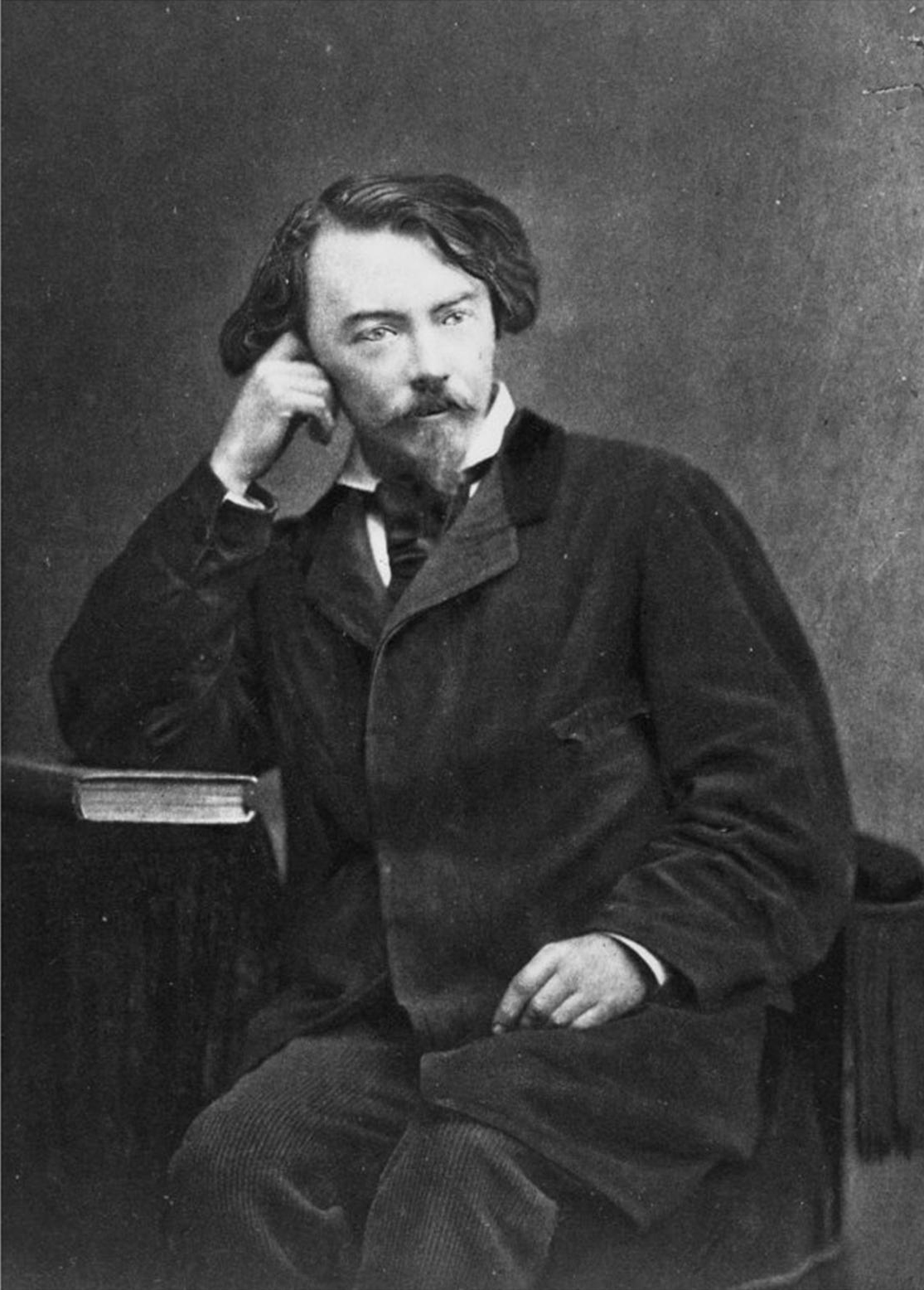
Sick, abandoned by life, Villiers is forced to seek public assistance and on the advice of a few friends shortly before dying in 1889 at the age of fifty-one he married his maid, the almost-illiterate Marie Dantin, as revealed by an awkward and ungrammatical letter of gratitude to Madame Mallarmé, who together with her husband opened a subscription that allows to the writer a dignified hospital stay. By getting married, the writer also recognizes his natural son Victor, who really doesn't look like an angel, at least reading the letter from the boy on the eve of Communion, who blackmails a relative to get some money: You force me to blacken a sheet of paper, which I need so much to build the boats: we have no money. Without many comments you will let me have it.
Poor Villiers, what an end to ever his elegant writing, this ancient and very vague, but jealous practice, in which the meaning rests in the mystery, as Stéphane Mallarmé will recite in the funeral commendation. Before inventing himself a writer, Villiers was called Mathias, after an ancient relative, bishop of Saint Brieuc, the Breton town where he was born in 1838; but immediately, as a good anticlerical, he preferred to boast the patrimony of the most combative ancestor Philippe-Auguste, grand Prieur de France and founder of the order of St. Jerusalem. She was very dear to young Villiers, the nobility; even if as an old man he would have admitted: Really, this name makes everything so difficult.
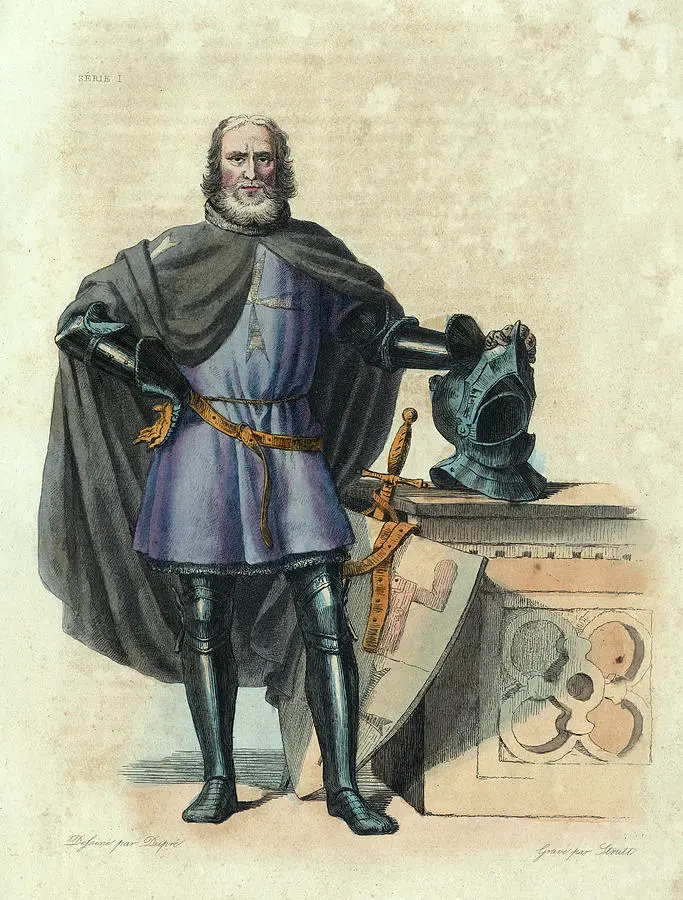
Villiers made his debut in his career as a storyteller by tracing large trees of illustrious kinship and tracing the history of his very ancient ancestors. And with a certain youthful daring, he manages to go back to the sire Raoul, lord of Villiers, who lived in 1146. And here is his existence filled with large branched trees, edicts and certificates, maps, sealing waxes and miniatures of the proud Lisleadam who opposed a great refusal to Suleiman II. Here is the Vessel of the Order of Malta, the arms and coats of arms, and then the family fiefdoms with names that seem to have been invented: Lopérec, Kerrohou, Manoir Penanhoas, even Mael-Pestivien, which really looks like a malicious Villiers fantasy. A fantasy which greatly benefited the Breton amosphere, impregnated with the smell of the ocean.
«I, the last Gaelic, came out of a family of Celts, hard as rocks. I belong to a lineage of navigators and extravagant warriors, whose actions of great prowess and resonance appear in the register of authentic jewels of history »
But the young Mathias, heir to a family from which the Revolution took everything away, is not naive: I carry in my soul the reflection of the sterile / riches of a great group of forgotten kings, he writes, and in the meantime realizes that, in such a changed world, he will be able to rival the nobility only thanks to his genius and his talent as a writer. Which arouses in him the ambition to add to the splendors of his lineage the only truly noble glory of our times, that of a great writer. And he becomes Villiers de l'Isle-Adam, poet, storyteller, playwright, symbolist, occultist, surrealist.

COUNT, MISANTROPUS, OCCULTIST AND DANDY
A novice writer in search of models, Villiers chooses the noble-poet as his interlocutor Alfred de vigny (the same Vigny who had written about his ancestors: If I retrace their history, they will be descended from me) and dedicates his family to him at the age of twenty-one First Verses: from aristocrat to aristocrat. But the beginnings are really hard: you pay out of your own pocket for the first elegantly bound copies of Iris [sic, the correct title is Isis; ed], a philosophical novel full of Hegelianism and then he has the misfortune of becoming a great theater writer. However, his extravagant and archaic style does not meet the tastes of the public: moreover, and as a wager, he makes his debut in the temple of the theater he most abhors, that of vaudeville. Scornfully, a dandy who will later become his friend, Barbey d'Aurevilly, jokes: M. Villiers de l'Isle-Adam, what a great name, for doing such small things!
The sketch of a painter who will be able to make great paintings, he will say instead Théophile Gautier of the play The revolté. After five replies, the revocation and the setback. But Villiers is consumed with ambition and confides in a letter:
“Believe me, when Victor Hugo snores forever in his shroud of glory and immortality, I am sure I will enter that throne of thought, on which he now sits. "
Above all, he feels a great actor, he plays very well long Shakespearean tirades and, playing all the roles himself, he stages his troubled theatrical parts, even in Wagner house. In her diaries Cosima Wagner notes: Villiers, this guy to whom we did not attribute any talent, finds in reality a starting point for a convincing play, which she has read to us with fabulous talent; a talent that even father Liszt had already been able to appreciate.
These are the years of Bayreuth legend: like all fashionable Frenchmen, Villiers begins his pilgrimage du coté de chez Wagner, and moreover with the most exalted Wagnerian of France, Catulle Mendes, Director of Wagnerian Revue and husband of Judith Gautier, daughter of the great Théophile. Who knows if in those six days of stay in Triebschen, guest of the Wagners, Villiers was able to attend the comical and pathetic performance of the no longer young German composer who, madly in love with Judith, took part in a triumphal climbing a tree, to demonstrate his not tarnished sporting skills.
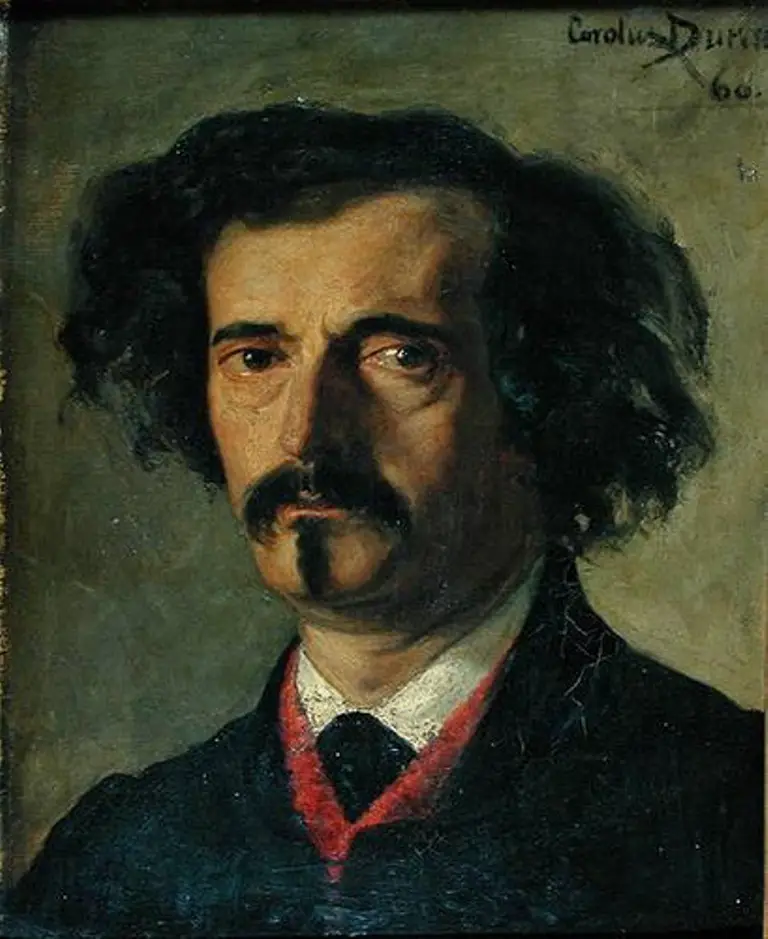
Music has a great place in Villiers's life: at the beginning he wanted to compose a comic opera, Le chevalier d'Eon, then becomes a musician for The death of lovers, together with Judith, whose sister Estelle was supposed to marry: but the poet-count was never lucky in love. There is also a moving dedication by Baudelaire, which sends him a plaquette on the Tannhauser, the work he has defended so much: he complains that he cannot listen to this masterpiece more frequently, and immediately Villers promises him that he will play it for him on the piano. That piano that my friend Mallarmé he saw in his house, vast and decrepit, almost without ropes, and it seemed to me the silent, sepulchral folding of the wing of dreams.
Even for fiction, Villiers's dreams were soon shattered: there is a letter from the Calmann-Lévy publisher, which seems to have been sent yesterday by a large multinational best-seller, in which he is told that a commission of readers has read the manuscript of hers Contes cruels being forced to recognize that a publication of this nature would probably not have a great chance of success with our customers. Because the stories that make up this book are not so much short stories, as articles of costume, or psychological essays, or even better, literary fantasies.
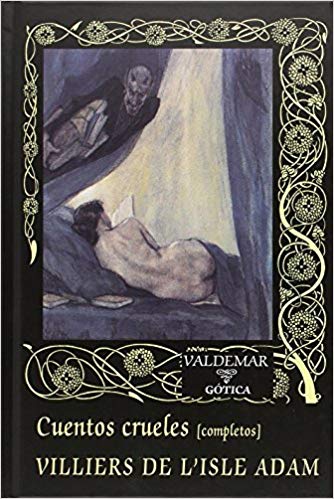
Villiers is the quintessential eccentric, who almanacs his stories starting from real and transfigured characters, such as the illustrator Gavarni, the divine singer Maria Malibran, Thomas Edison himself, an adventurous and compliant scientist, who gives life to a perfect woman and fake, built like a machine, with a beautiful soprano voice: indeed Future Eve. Originally the novel, of satirical intonation and not yet science fiction, was called Twin: then Villiers, with precocious intuition, discovers the scientist inventor of the phonograph and decides that he must absolutely make him his character: whoever has been able to reproduce, indeed, mechanically invent the human voice, will also be able to artificially produce life. Thus, in fact, Edison preaches in the novel:
" The life? Well, my dear Lord, I will tell you that I felt I had to discard it as a noxious superfetation. "
After all, a little like Umberto Eco with his Pendulum, also Villiers places at the epigraph of Eva an invocation of Solomon, directly in Hebrew: Habal, Habalim !! Vanities, vanity, everything is vanity! But in reality, even life has something to teach Villiers. He confesses that Future Eve for him it is nothing more than an authentic revenge-novel. Some letters reveal, in fact, that the writer, inventing his Eve, wants to take revenge for the love affair of a wealthy Englishwoman who had promised to marry him and who then messed up the lucrative marriage. There is still his name, barely erased after the fracture, on a copy of a book that he would have liked to give her. He was called Anna Eyre Powell, and had wonderfully impersonated Leonora, in Trovatore .

HE WANTED A DAGGER TO KILL TIME
Inexorable sales became literature, macerated chemisms of the soul, furious darkness. As the writer says of a character about him: one of those beings so constituted that even in the midst of streams of light they cannot cease to be dark, so is Villiers himself. Villiers's universe is frozen and delusional, even more so than Sade's. It is a world haunted by gothic but modernized ghosts, crisscrossed with lightning whims of style. Prezzolini concluded with precocious intuition in 1910 a style that, immediately at first glance, has beaten and beaten copper, a style of metallic color, the color of motor oil scattered over a lake, which from a distance is iridescent and close betrays the mechanical origin.
Verlaine, moreover, called Villiers a poète absolute, Mallarme was delighted with his God-given language, Baudelaire argued that only Poe could match him, and Maeterlinck said that the discovery of this writer, a real shock, had changed his life:
“There is, for me, a before and after Villiers. On one side the shadow, on the other the light »
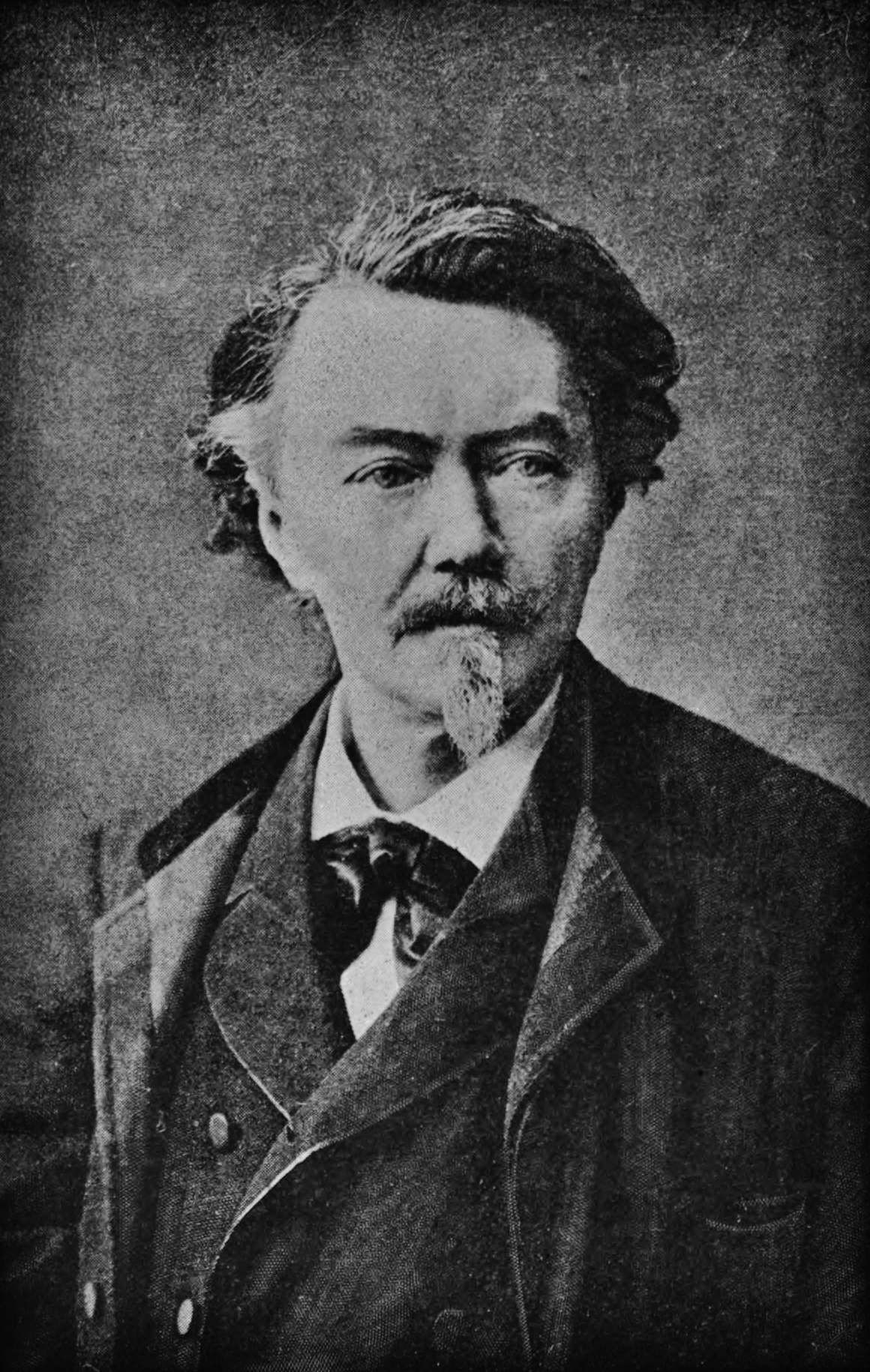
An avid reader of the great master of occultists, Eliphaz Levi, a friend of Sar Peladan, Villiers, with this hazy gaze of a living ectoplasm, the wet and fleeting eyes of a dog, does not disdain to pose as a dark prophet. Prophet among the devices for the collection of the modern world, as Mallarme said lyrically, in his masterful funeral speech, transcribed with slow and dilated handwriting, in order to improvise it by voice, in seven cities.
Villiers was a born, colorful conversationalist who wasted his conversation like a lavish alms to the world: his arrival in Paris from the provinces was almost as memorable as Rimbaud's: Nothing will disturb the vision of the arrival in the spirit of many who are scattered men. A flash, yes, this reminiscence will remain in everyone's memory. Villiers saw ghosts everywhere; while in his Cahiers blue noted everything (the chemical preparations to soothe his hypochondria, or the hygienic rhythms to better attack the career of a writer, he who to survive had also been a boxing instructor), here he witnesses shortly before dying the modernist birth of Tour Eiffel.
But one monstrosity alone is not enough for him. It invokes the creation of a second Eiffel Tower, close and parallel to the other. Thus, a leg here, a leg there, at their peak, similar to the Colossus of Rhodes, here is a gentleman in a black suit and patent ankle boots, representing Progress. Like all the dandies of the moment, he too hated the Progress dear to positivism. Even if he lived by these curious contradictions of his: he dedicated his books to Prince Bonaparte-Wysé but he was also a faithful friend of the journalist-bomber Victor Noir, who died under the bullets of another Bonaparte. He greeted the Commune with enthusiasm, but above all hating the President Léon Gambetta to whom he dedicated a furious pamphlet. He ran for a list of conservatives in the municipal elections, even though he knew he could not make it, for the sole honor of the defeat.
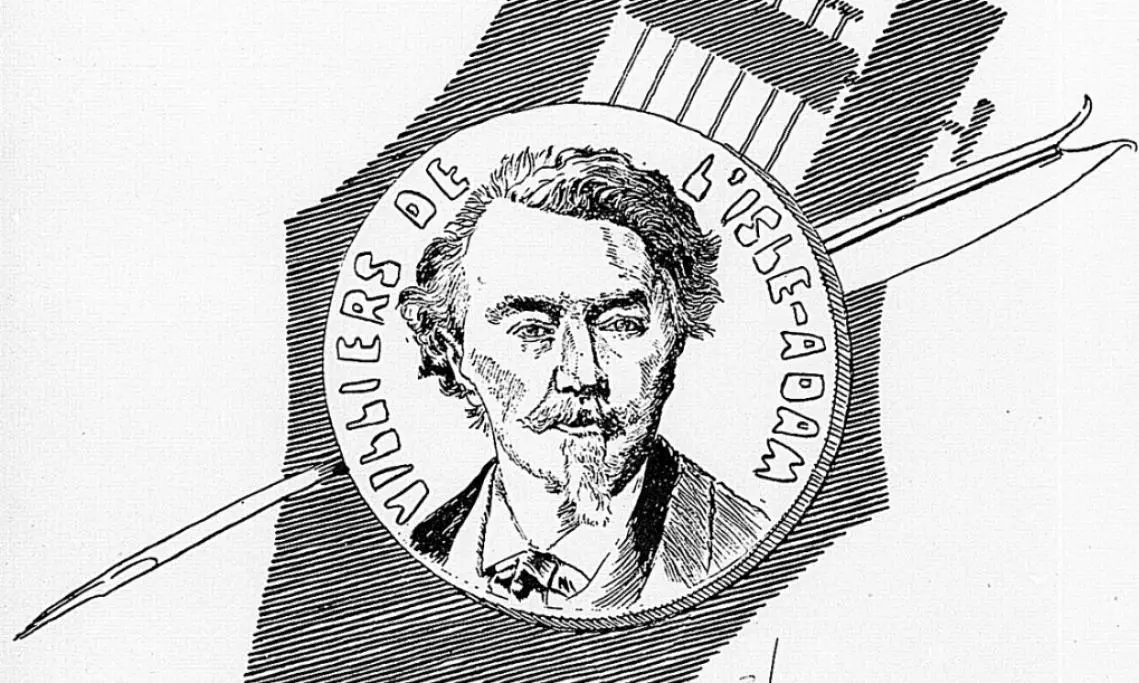
Adventurer of the unconscious, so he considered himself in a youth drama, he had written:
“Too young for freedom, too old for the monarchy, these are the peoples of today. Who we are? Twilight men. What is our future? Who cares? Do the leaves in winter know where the wind will take them? A sun rises over there that we will not greet »
Elsewhere, he had already ruled: I want to arm myself with a dagger to kill time. The hatred of progress, Villiers overturns it above all in one of his extraordinary characters, whom he symbolically calls Tribulat Bonhomet. Doctor, philanthropist, man of the world, that is, a mannequin who embodies all that Villiers hated, pedantic and proud habitation of clichés, architrave of the foolish bourgeois bourgeoisie, an enormous, misunderstood, monstrous and exact character, as photographed by Philippe Sollers, one of the most beautiful portraits of the death drive. The program of an inexorable satire of bourgeois stupidity was clearly present to the writer, who confided in Mallarmé, the only, only friend:
“The reality is that I will do with the bourgeois, if God grants me life, what Voltaire did with the clericals, Rousseau with the aristocrats and Molière with the doctors. There seems to be a grotesque power in me that I didn't think I had. They told me that in comparison with me, Daumier flattered the bourgeois »
Villiers was a great admirer of Gustave Flaubert. She had written to him: I admire you and I keep you in the depths of my feeling as a colossal poet and one of the greatest writers who ever lived.. Undoubtedly the character Tribulat descends from the pettiness of everyday life described in Madame Bovary and to the encyclopedic betise examined in Bouvard e Pécuchet.
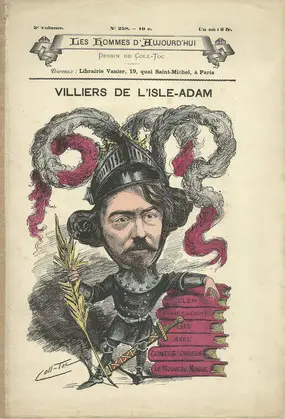
But in this mannequin there is still something more sarcastic and surreal that anticipates Jarry and the musician-ironist Satie. Tribulat has the habit of looking at infinity through a keyhole. He goes around killing swans to hear the decadent melodies of their agony. Above all, he is convinced that God is a perfect businessman, that he created man, but that he also happened vice versa. In short, an idiot of genius who haunts Villiers precisely for this reason, but also influences the most subtle reader: because after all, Tribulat Bonhomet is in each of us, and himself, malicious and aware. And he comes to remind us, as a malicious threat:
«Je suis inevitable! I am inevitable! I am unforgettable! Endless! Each of you brings a pebble to my building »

6 comments on “Villiers de l'Isle-Adam, adventurer of the unconscious"